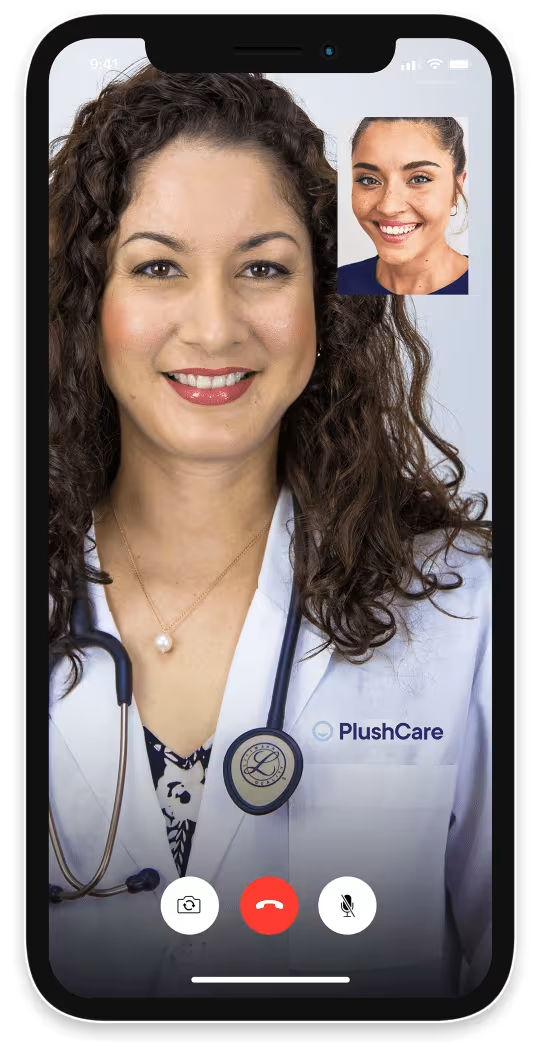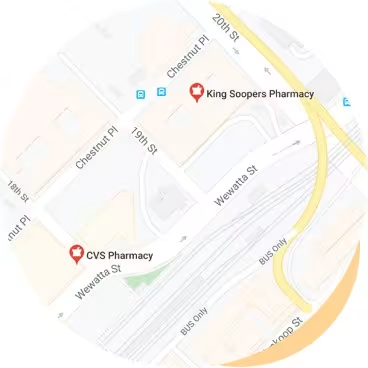
About Bactrim DS
Bactrim DS is a combination of two antibiotics—sulfamethoxazole and trimethoprim—which work to fight bacteria. Like other antibiotics, Bactrim DS is ineffective against fungal or viral infections.
Bactrim DS is used to treat ear infections, urinary tract infections, and other bacterial infections. Bactrim DS is available only by prescription. It is available in a generic formulation and under different brand names, including sulfamethoxazole-trimethoprim.
Bactrim DS may be prescribed as a tablet, oral suspension, or intravenous solution. It’s always important to follow the specific instructions on your prescription, as they can vary based on the formulation and dosage prescribed.
If you're prescribed Bactrim DS, be sure to complete the entire course of the combination antibiotic unless your doctor specifically tells you to stop. The combination antibiotic therapy may not fully treat your bacterial infection if you don't complete your prescription.
* Please note that we are unable to prescribe IV medications at PlushCare.
Bactrim DS uses
There are six FDA-approved uses for Bactrim DS, but it may also be used off-label to treat other conditions. Your online medical professional may prescribe it for any of the following common reasons.
It’s also possible that your healthcare provider may prescribe it for other reasons not listed here. Ask your online doctor or pharmacist if you have questions about why a medication is prescribed.
Urinary tract infections
Bactrim DS is FDA-approved to treat UTIs caused by Escherichia coli, Klebsiella species, Enterobacter species, Morganella morganii, Proteus mirabilis, and Proteus vulgaris bacteria.
Otitis media
Bactrim DS is FDA-approved to treat otitis media in pediatric patients caused by Streptococcus pneumoniae or Haemophilus influenzae bacteria.
Chronic bronchitis
Bactrim DS is FDA-approved to treat chronic bronchitis caused by Streptococcus pneumoniae or Haemophilus influenzae bacteria.
Shigellosis
Bactrim DS is FDA-approved to treat gastroenteritis caused by Shigella flexneri or Shigella sonnei bacteria.
Pneumocystis jiroveci pneumonia
Bactrim DS is FDA-approved to treat Pneumocystis jiroveci pneumonia. It can also function as prophylaxis against P. jiroveci pneumonia in immunosuppressed patients with a high risk of developing P. jiroveci pneumonia.
Traveler's diarrhea
While not the first line option, Bactrim DS is FDA-approved to treat traveler's diarrhea caused by enterotoxigenic E. coli bacterial infections.
Bactrim DS side effects
The side effects associated with taking Bactrim DS are typically mild. Most Bactrim DS side effects are associated with gastrointestinal discomfort.
Bactrim DS has some common side effects. They may include:
Nausea or vomiting
Loss of appetite
Mild itching or skin rash
Other side effects, which are less common but might be more severe, could include:Severe stomach pain
Serious skin reactions, such as Stevens-Johnson syndrome
Unusual bleeding or bruising
You should call your doctor if you notice any adverse effects or develop other new or concerning symptoms. Bactrim DS is not recommended for young children under two months of age.

How to take Bactrim DS
Your pharmacist will be able to give you instructions on how to take your Bactrim DS prescription. Be sure to read your prescription label and follow the instructions. Call your doctor or pharmacy if you have any questions.
Bactrim DS can come in different forms and doses, so follow the specific instructions on your prescription. A common dosing regimen for bactrim is 800 mg of sulfamethoxazole with 160 mg of trimethoprim every 12 hours with the duration dependent on the type of infection it is being used to treat or prevent.

What to avoid while taking Bactrim DS
Bactrim DS has 393 drug interactions. Don’t change what you take without checking with your doctor or pharmacist. That includes other prescription drugs or supplements, as well as nonprescription drugs.
Possible drug interactions with Bactrim DS include:
ACE inhibitors and blood pressure medications, such as benazepril, enalapril, and lisinopril
Diuretics (water pills), such as chlorthalidone and hydrochlorothiazide
Amantadine, cyclosporine, indomethacin, leucovorin, methotrexate, and pyrimethamine
Bactrim DS can increase your skin's sensitivity to sunlight. Avoid exposure to sunlight for prolonged or repeated periods. Wear protective clothing and sunscreen when you're outdoors.
Drinking alcohol while taking Bactrim DS may lead to serious side effects, such as irregular heartbeat, nausea, or vomiting. Talk to your doctor before drinking alcohol.
Medication alternatives to Bactrim DS
If your healthcare provider prefers to put you on another treatment, they may suggest another combination antibiotic or antibiotic therapy in another drug class. Here are some common doctor-recommended alternatives based on your health issue:
Urinary tract infections
Acute otitis media
Chronic bronchitis
Shigellosis
Pneumocystis jiroveci pneumonia
Mepron (atovaquone)
Dapsone plus trimethoprim
Traveler's diarrhea
Bactrim DS prescription FAQs
How much does Bactrim DS cost?
Depending on your pharmacy, Bactrim DS oral tablets cost around $283 for one hundred tablets without insurance. Fortunately, generic formulations of sulfamethoxazole-trimethoprim, offer an affordable alternative.
How can I get a prescription for Bactrim DS prescription?
Book a virtual appointment with a board-certified PlushCare doctor to get a prescription of Bactrim DS, if appropriate. After reviewing your symptoms and medical history, your doctor can send an electronic prescription to your local pharmacy.
When should you not take Bactrim?
You should not take Bactrim DS if you have severe liver disease, kidney disease, or folic acid deficiency. Always consult your healthcare provider to assess individual risks and benefits. Avoid using this medication if you're pregnant or breastfeeding.
What happens if you take Bactrim on an empty stomach?
Some people experience nausea and vomiting after taking this medication on an empty stomach. Taking Bactrim DS with food can help reduce nausea.
Who should not take Bactrim DS?
Avoid taking Bactrim DS if you have certain medical conditions. Bactrim DS contraindications include but are not limited to:
Severe liver disease
Kidney disease or severe renal insufficiency
Certain blood disorders, such as anemia due to folate deficiency
Decreased bone marrow function (bone marrow suppression)
Allergic reactions to sulfamethoxazole or trimethoprim
What happens if I miss a dose of Bactrim DS?
If you miss a dose of Bactrim DS, take the missed dose as soon as you remember. Skip the missed dose if it's almost time for your next dose. Avoid taking two doses to make up for a missed dose.
What happens if I take too much Bactrim DS?
If you've taken too much Bactrim DS, contact your local or provincial poison control center (for Canadian residents), or seek emergency medical attention.
3 simple steps to request your Bactrim DS prescription today

Step 1
Book a Bactrim DS prescription request appointment.
You can book a same-day appointment from anywhere.

Step 2
Talk to your medical provider regarding your Bactrim DS prescription.
You can visit a doctor on your smartphone or computer.

Step 3
Pick up your Bactrim DS prescription.
We can send prescriptions to any local pharmacy.
Bactrim DS prescription pricing details
How pricing works
To get a new or refill on your Bactrim DS prescription, join our monthly membership and get discounted visits.
Paying with insurance
Membership
$16.99/month
First month free
Visits
Copay
30 days of free membership
Same-day appointments 7 days a week
Unlimited messages with your Care Team
Prescription discount card to save up to 80%
Exclusive discounts on lab tests
Free memberships for your family
Cancel anytime
Visit price with insurance
Often the same as an office visit. Most patients with in-network insurance pay $30 or less!
We accept these insurance plans and many more:
Paying without insurance
Membership
$16.99/month
First month free
Visits
$129
30 days of free membership
Same-day appointments 7 days a week
Unlimited messages with your Care Team
Prescription discount card to save up to 80%
Exclusive discounts on lab tests
Free memberships for your family
Cancel anytime
Visit price without insurance
Initial visits are $129.
If we're unable to treat you, we'll provide a full refund.
Bactrim DS prescription resources
Sources:
PlushCare is dedicated to providing you with accurate and trustworthy health information
Food and Drug Administration. Bactrim prescription label. Accessed on September 30, 2022. https://www.accessdata.fda.gov/drugsatfda_docs/label/2013/017377s068s073lbl.pdf
Mayo Clinic. Sulfamethoxazole And Trimethoprim (Oral Route). Accessed on September 30, 2022. https://www.mayoclinic.org/drugs-supplements/sulfamethoxazole-and-trimethoprim-oral-route/description/drg-20071899
National Library of Medicine. Management of Pneumocystis Jirovecii pneumonia in HIV infected patients: current options, challenges and future directions. Accessed on September 30, 2022. https://www.ncbi.nlm.nih.gov/pmc/articles/PMC3218692/
PlushCare content is reviewed by MDs, PhDs, NPs, nutritionists, and other healthcare professionals. Learn more about our editorial standards and meet the medical team. The PlushCare site or any linked materials are not intended and should not be construed as medical advice, nor is the information a substitute for professional medical expertise or treatment.